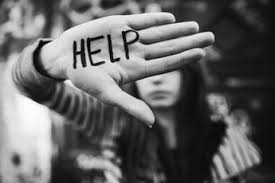Being a teenager can be tough. There are changes taking place in your body and brain that can affect how you learn, think, and behave. And if you are facing tough or stressful situations, it is normal to have  emotional ups and downs.
emotional ups and downs.
But if you have been overwhelmingly sad for a long time (a few weeks to months) and you’re not able to concentrate or do the things you usually enjoy, you may want to talk to a trusted adult about depression.
What Is Depression?
Depression (major depressive disorder) is a medical illness that can interfere with your ability to handle your daily activities, such as sleeping, eating, or managing your school work. Depression is common but that doesn’t mean it isn’t serious. Treatment may be needed for someone to feel better. Depression can happen at any age, but often symptoms begin in the teens or early 20s or 30s. It can occur along with other mental disorders, substance abuse, and other health conditions.
Why can’t you just ‘snap out’ of depression?
Well-meaning friends or family members may try to tell someone with depression to “snap out of it,” “just be positive,” or “you can be happier if you just try harder.” But depression is not a sign of weakness or a character flaw. Most people with depression need treatment to get better.
What Are the Signs and Symptoms of Depression?
Sadness is something we all experience. It is a normal reaction to a loss or a setback, but it usually passes with a little time. Depression is different.
If you are wondering if you may have depression, ask yourself these questions:
- Do you constantly feel sad, anxious, or even “empty,” like you feel nothing?
- Do you feel hopeless or like everything is going wrong?
- Do you feel like you’re worthless or helpless? Do you feel guilty about things?
- Do you feel irritable much of the time?
- Do you find yourself spending more time alone and withdrawing from friends and family?
- Are your grades dropping?
- Have you lost interest or pleasure in activities and hobbies that you used to enjoy?
- Have your eating or sleeping habits changed (eating or sleeping more than usual or less than usual)?
- Do you always feel tired? Like you have less energy than normal or no energy at all?
- Do you feel restless or have trouble sitting still?
- Do you feel like you have trouble concentrating, remembering information, or making decisions?
- Do you have aches or pains, headaches, cramps, or stomach problems without a clear cause?
- Do you ever think about dying or suicide? Have you ever tried to harm yourself?
What Should I Do If I am Considering Suicide or Harming Myself?
If you are in crisis and need help, call this toll-free number for the National Suicide Prevention Lifeline (NSPL), available 24 hours a day, every day: 1-800-273-TALK (8255). The service is available to everyone. The deaf and hard of hearing can contact the Lifeline via TTY at 1-800-799-4889. All calls are confidential. You can also visit the Lifeline’s website at www.suicidepreventionlifeline.org.

The Crisis Text Line is another free, confidential resource available 24 hours a day, seven days a week. Text “HOME” to 741741 and a trained crisis counselor will respond to you with support and information over text message. Visit www.crisistextline.org.
Not everyone with depression experiences every symptom. Some people experience only a few symptoms. Others may have many. The symptoms and how long they last will vary from person to person.
Read about the High School PAWS…and Think Club’s month of Mental Health awareness.





